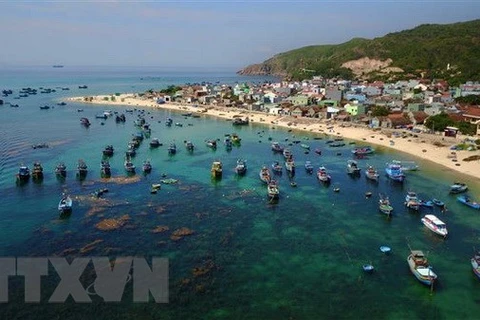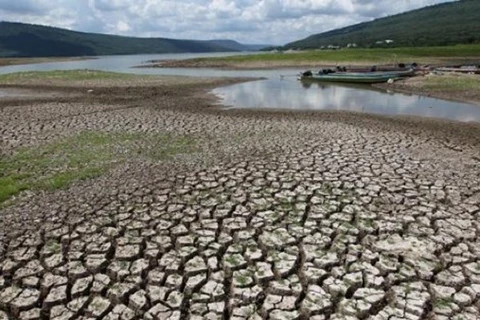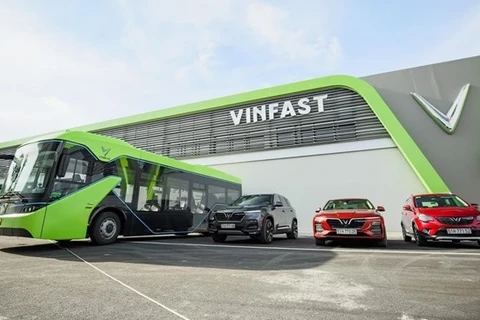Hanoi (VNA) - Vietnam is projected to need about 330 - 370 billion USD to realise net zero emissions by 2050 as pledged by Prime Minister Pham Minh Chinh at the 26th UN Climate Change Conference (COP26), said Caitlin Wiesen, Resident Representative of the United Nations Development Programme (UNDP) in Vietnam.
She made the statement while speaking at the fifth National Environment Conference hosted by the Ministry of Natural Resources and Environment on August 4. The conference takes place at an important time as Vietnam is realising commitments announced at COP26.
The UNDP representative advised Vietnam to speed up the production of renewable energy, improving productivity, and protecting labourers and vulnerable groups.
Vietnam should design an innovative and dedicated climate finance strategy to facilitate green finance flows from all investment and development sources, she said. It needs a more systematic and cohesive circular economy approach to support low-carbon and climate-resilient economic development.
To mobilise sufficient funding, efforts from both the public and private sectors at home and abroad are required, Weisen continued. Most importantly, assistance from the domestic private sector plays an essential role to achieve the set targets.
The UNDP Resident Representative said that in order to achieve the goal of net zero emissions by 2050, it is necessary for Vietnam to prioritise six actions drawn from lessons learned in the world. Vietnam needs to strengthen climate legislation to guide and implement domestic climate actions towards zero emissions targets.
She advised Vietnam to strengthen regulations on climate and build an inclusive law in this regard so as to facilitate breakthrough ideas and avoid overlapping and non-essential policies.
Furthermore, the Southeast Asian country needs to speed up the production of renewable energy and improve productivity, as it boasts huge potential for the development of such types of energy, particularly offshore wind power.
Vietnam should design an innovative and dedicated climate finance strategy to facilitate green finance flows from all investment and development sources, she said. It needs a more systematic and cohesive circular economy approach to support low-carbon and climate-resilient economic development.
The country is advised to build policies and measures on plastic consumption and plastic waste reuse.
Wiesen stressed that nature-based development is Vietnam's sustainable path. She also recommended the country needs to strive for an inclusive transformation that puts the people and social justice at the centre of all policies.
The official pledged the UNDP and the UN are always willing to support the Vietnamese Government in its transition to a green, carbon-neutral, circular and climate-resilient economy.
The National Environment Conference, organised every five years, was held in a special context where green recovery is a global trend and green and circular economy is being promoted in Vietnam.
Environmental issues are always placed at the centre of the agenda, development programmes, strategies, master plans and plans of the country with the highest goal of protecting people's health, ensuring the quality of the living environment, and preserving biodiversity and ecosystems, heard the event.
At the session, participants focused on defining changes, challenges and orientations for the environmental protection in the next period. Discussions at the event highlight Vietnam’s efforts in engaging in global environmental issues, measures to promote green economy and ecological industrial parks, and the promotion of businesses’ role in environmental protection. They also shared experience in safeguarding the environment.
Vietnam is one of the countries most affected by climate change and has a large annual total of greenhouse gas (GHG) emissions (ranked 21st in the world and 2nd in ASEAN).
Vietnam's commitment to net-zero emissions shows the strong political determination of the country in stepping up economic transformation to contribute to solving the climate crisis./.
























